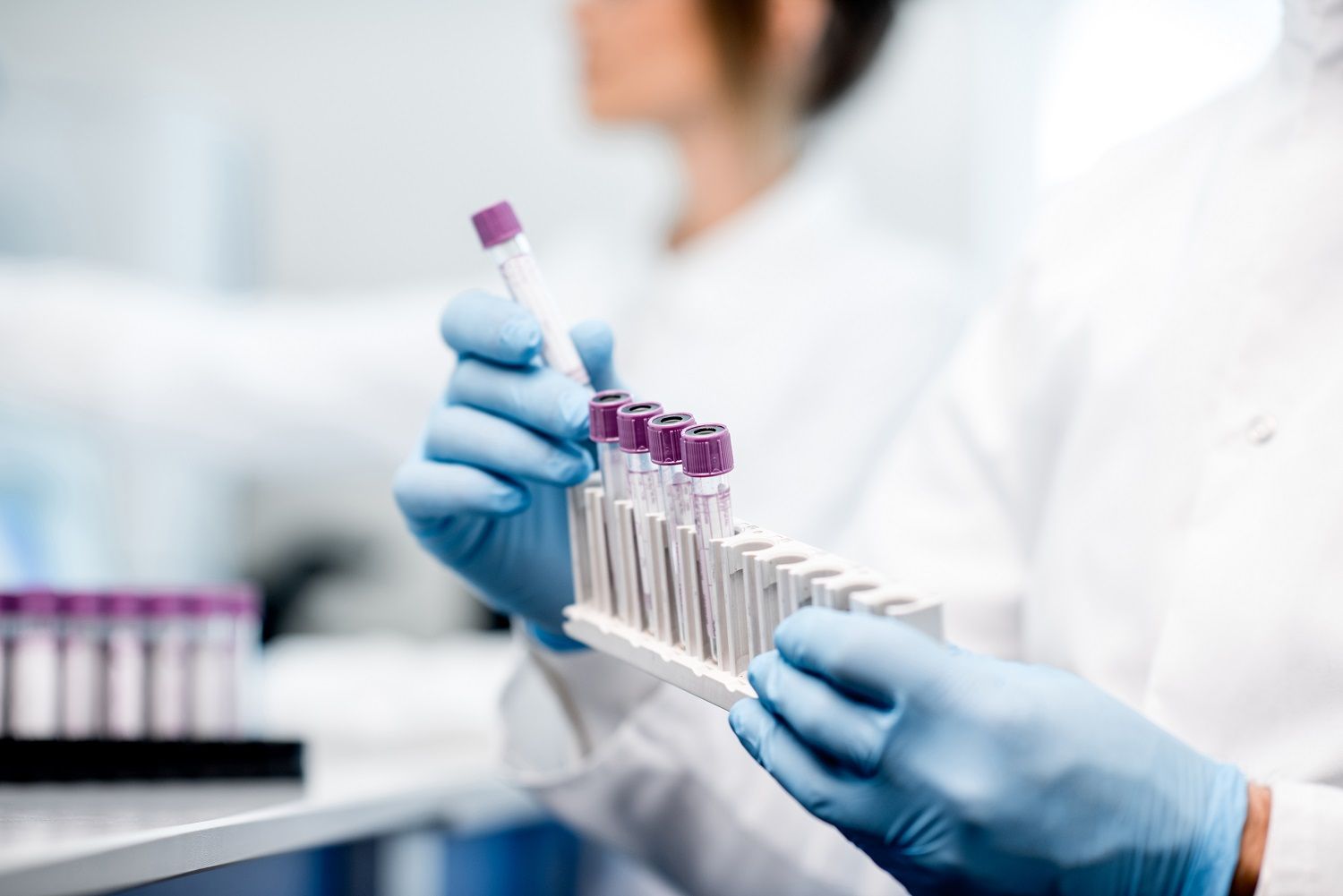You're pregnant! Congratulations!
While pregnancy is an exciting time, it is also a time when you may have many questions and concerns. On this page, we have put together information and resources to help you take care of yourself (and baby!). We are glad to be able to share the medically reviewed information with you but remember: nothing takes the place of regular visits with your health care provider for prenatal care.
If you are still looking for a physician, please consider Good Neighbor Community Health Center and Good Neighbor Fremont. We have contracted with highly qualified OB providers who look forward to working with you to help make your pregnancy a happy and healthy one.
To make an appointment or for more information, please call (402) 562-7500 (Columbus) or (402) 721-0951 (Fremont).
Testing for birth defects

Birth defects can be diagnosed during pregnancy or after the baby is born, depending on the specific type of birth defect. One of the tests used by the health care providers at Good Neighbor clinics is the Maternal Serum Alpha-Fetoprotein Screening (MSAFP) test. The MSAFP is a screening test that examines the level of alphafetoprotein in the mother’s blood during pregnancy. A screening test DOES NOT diagnose a problem; they only signal that further testing should be done.
How is the MSAFP test performed?
Blood is drawn from veins in the mother’s arm and sent off to a laboratory for analysis. Results are usually returned between one and two weeks.
When is the MSAFP test performed?
MSAFP may be performed between the 14th and 22nd weeks of pregnancy. It seems to be most accurate during the 16th to 18th week. Your levels of AFP vary during pregnancy so accurate pregnancy dating is needed for more reliable screening results.
What does the MSAFP test look for?
The AFP test is measuring high and low levels of alpha-fetoprotein. The results are combined with the mother’s age and ethnicity in order to assess the probabilities of potential genetic disorders. High levels of AFP may suggest the developing baby has a neural tube defect such as spina bifida or anencephaly. High levels of AFP may also suggest defects with the esophagus or failure of your baby’s abdomen to close. However, the most common reason for elevated AFP levels is inaccurate dating of the pregnancy.
Low levels of AFP and abnormal levels of hCG and estriol may indicate the developing baby has Trisomy 21( Down syndrome), Trisomy 18 (Edwards Syndrome) or another type of chromosome abnormality.
Abnormal levels may also be a result of the following:
- A multiples pregnancy
- Pregnancies that are more or less advanced than thought
What does it mean if my MSAFP test is negative?
A negative test result means you have a lower chance that your baby has an open neural tube defect, Down Syndrome or Trisomy 18.
Does a positive MSAFP test mean that my baby has a birth defect?
No. MSAFP is a screening test; it cannot diagnose problems with your baby or pregnancy. The test only identifies women who are more likely to have a baby with an open neural tube defect, Down Syndrome or Trisomy 18. A positive MSAFP result means that more diagnostic tests may be offered.
What are the risks and side effects of MSAFP test to the mother or baby?
Except for the discomfort of drawing blood, there are no risks or side effects associated with the MSAFP.
What other tests are offered if my MSAFP test is positive?
Follow up options will be decided on between you and your health care provider. In general, most women with a positive result are referred for genetic counseling, ultrasound and amniocentesis.
MSAFP test screens for the following birth defects:
- Open Neural Tube Defects. Open neural tube defects, such as spina bifida, occur when the baby's neural tube, or spine, does not close completely during development, leaving the spinal cord exposed. Approximately 1 in 1,000 babies has an open spina bifida. The effects of open spina bifida range from bladder control problems to paralysis and mental retardation. The MSAFP test can identify more than 80% of pregnancies that may have open neural tube defects.
- Down syndrome. Down Syndrome occurs in about 1 in 800 births. It is a disorder in which the baby has an extra chromosome. In a normal pregnancy, each baby inherits a total of 46 chromosomes, 23 from the mother, and 23 from the father. In Down Syndrome, instead of inheriting one chromosome 21 from the mother and one chromosome 21 from the father, the baby inherits a total of three of chromosome 21. Down Syndrome can also be called Trisomy 21. Babies with Down Syndrome have some degree of mental retardation and often have physical abnormalities, such as heart defects. MSAFP tests can detect 75% to 80% of Down Syndrome pregnancies.
- Trisomy 18. Also called Edwards Syndrome, Trisomy 18 is rare and only occurs in 1 out of every 8,000 births. Like Down Syndrome, Trisomy 18 is a chromosome abnormality, but is caused by the baby having three of chromosome 18. Babies with Trisomy 18 have significant birth defects and severe mental retardation. Few live beyond the age of one year. MSAFP tests can detect more than 60% of Trisomy 18 pregnancies.
Diagnostic Testing
Ultrasound is the use of high frequency sound waves and a computer to create images of the developing baby. Ultrasound is an important tool to help determine gestational age, or how far into the pregnancy you are. The levels of the proteins measured in the MSAFP test vary with each week of pregnancy, so unless the exact gestational age used during the MSAFP analysis was accurate, your test results may not be accurate. If ultrasound dating changes your gestational age by 10 days or more, your physician/nurse practitioner will ask the lab to recalculate your test results. Your result may change after the gestational age adjustment.
Ultrasound may also reveal the presence of twins, which will affect the MSAFP test result. Certain birth defects, such as open spinal bifida, may also be seen on ultrasound. Babies with Down Syndrome and Trisomy 18 may have certain features that can be seen on ultrasound, but in general, neither can be diagnosed by ultrasound alone.
Amniocentesis is a test where a sampling of your baby’s amniotic fluid is tested for definitive chromosome analysis. In amniocentesis, a very thin needle is inserted into the uterus through the abdomen and a small amount of amniotic fluid is removed. You will feel very little pain during the procedure, and you’ll probably be advised to take it easy for a few hours afterward. An amniocentesis has a risk of miscarriage of about 1 percent. An amniocentesis can give an accurate diagnosis of chromosomal abnormalities, as a count of all chromosomes is performed through DNA analysis.


